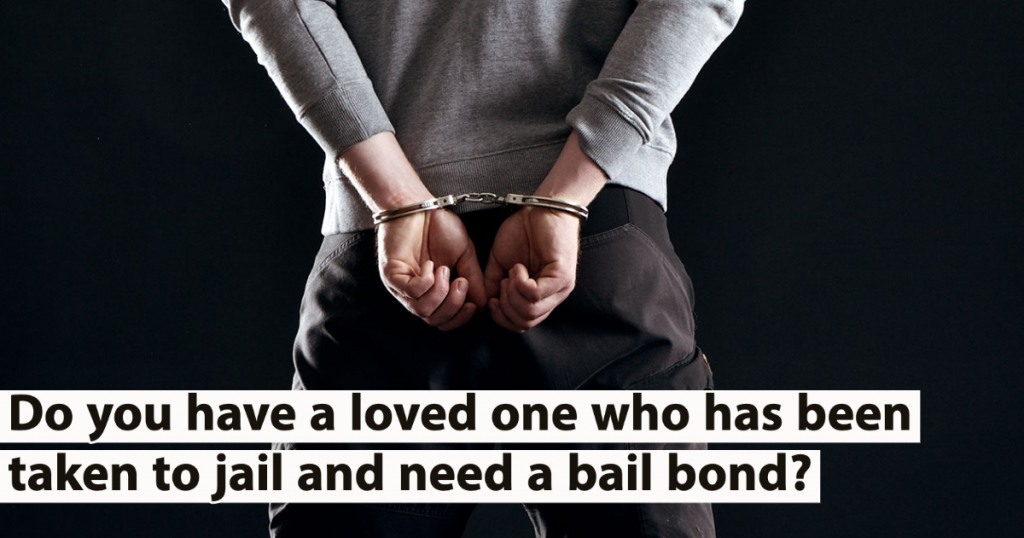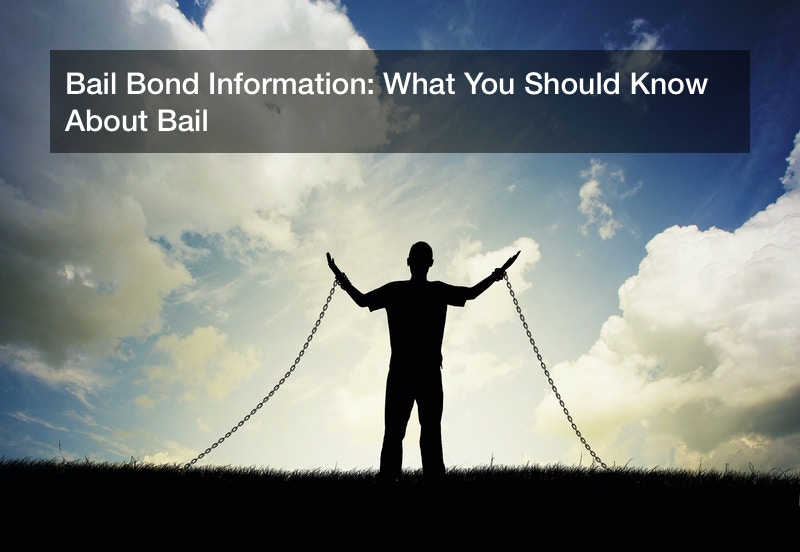
Updated 3/30/22
Getting arrested can be a scary experience. In most cases, the destination becomes the jail. Most people want to avoid this result by working with reputable lawyers in the community. There are, however, some cases that you can easily handle and regain your freedom by looking for bail. The availability of bail bondsmen in the community should create an avenue to handle your case effortlessly. This is possible by learning more.
Before you decide to look for bail, ensure you understand the bail arguments. Besides dealing with the court, you have to deal with the bondsman to meet your expectations. When you understand the aspects of the bailing process, utilizing bail bonds for low income families becomes possible. What you know about seeking bail remains paramount in your quest to regain your freedom.

As you handle the arguments for bail, ensure you understand the related consequences. Getting long jail terms is possible when you fail to honor the bond agreement. Look for a lawyer to guide you through the agreement and the consequences to avoid further penalties. You should note that dealing with a bail bondsman for failure to appear before the court can negatively affect your records. It serves your interest to learn about bails before looking for one.
You probably need to know as much as possible about bail and jail before you end up in a situation where you have to deal with either of these factors. You need to understand that bail bond services are there to try to help you when you end up in jail and are looking to get out to fight your case from home.
There are likely to be bail arguments made in your case before the case can proceed on to the next stages. The court will hear everything that your attorney can present about why you deserve to have access to bail bond resources, and then will decide what amount of bail is appropriate in your case.

After you have received this information, you can look at a bail bond interest rate and see what amount you may need to pay for the bond that you will need to acquire to get out of jail in the first place. You can make it happen and get on to the next stage of your life by seeing what the court has to offer and then making the financial decisions that you need to make to get your bond set up.
After arrest, a person can be charged and released on bail or remain in custody until the case is determined. Most people don’t like suspects released on bail, but it is a relief to the suspects and their families. If you are arrested, ask your lawyer to file for 24 hour bail bonds to get temporary relief.
In some cases, the police can arrest and release a person with a written notice to appear in court or release them after paying the bail amount. Ask your lawyer about the available bail options and when the bail hearing cases will be determined.
Unless there is a good reason why you cannot be released on bail, it is the victim’s right to be released on bail during the trial. However, it’s best to understand how you should behave outside of police custody and when you need to appear in court.
In some cases, you can be granted bail without conditions. This means the person is freed from police cells, and they won’t be needed to answer to bail. If you have any questions about bails and bail in non bailable offences, find answers from your lawyer. Similarly, ask your attorney about bail extended meaning and other questions you may have.
Obtaining a bail bond immediately after arrest is ideal because it means that you are likely going home right away instead of having to spend any more time in jail than what is absolutely necessary for processing. You might find yourself looking up bail extended meaning or asking your lawyer about bail in non bailable offence cases, but most likely you will be looking at getting bail in the most typical way which is to get it shortly after you have been arrested for a given crime.
Have you ever wondered about when a bail decision is made at what stage? This is exactly the type of question that people ask because they need to know if they have made a mistake by not having this information when they are arrested. The good news here is that there is no reason to freak out. Bail during trial is rare, but it is far more common to receive a bail hearing shortly after you have been arrested. This is routine and what you should expect to happen given the way that the legal system works. Try to take your time learning about the ins and outs of a complex system like this so you know how to navigate it when the time comes.
A lot of people have negative opinions about bail because they do not understand it very well. They think that it is basically a way to get out of facing consequences for one’s actions. However, this is not necessarily the case. It only allows for a temporary release from jail that is conditional on the person’s appearance in the courtroom when required.
If you want to learn more about bail, it would be a good idea to talk to someone who has expertise on the topic, such as an attorney or one of many bail bond agents in your area. You can ask these individuals many questions if you want to do so. For example, you might want to ask, how can I find out if someone is still in jail? What if someone is arrested while out on bail? What exactly is the relationship between bail and jail? What exactly are bail arguments? It would be good to understand these concepts as well as you can. Even though you may not think that this could happen, it is always possible to someone you love could end up having to be bailed out of jail, and being armed with this knowledge could be very helpful in that situation.
Many people do not think it is worth it to learn about bail. In fact, they are judgmental of anyone who has been bailed out of jail or needs to be bailed out of jail without bothering to learn more about the situation. However, the truth is that not everyone who needs to be bailed out of jail is a criminal without a conscience. Some of them were just in the wrong place at the wrong time and ended up involved in an incident that escalated too much. In other cases, someone might have been falsely accused. This is why it is a good idea to learn about bail so that you can end up protected in the event that you are in jail without really deserving to be.
It is good to know that there are 24 hour bail bond services that are available. If you are interested in learning more about bail, you can ask an experienced attorney or a bail bondsman to explain certain concepts to you, such as bail hearing cases, bail in non bailable offense, bail judgments, bail on new facts decided cases and more. Having an understanding of these concepts might make you better prepared for needing to be bailed out of jail or seeing a loved one in this situation.
A judge sets bail on a criminal as a security that he/she will appear for the rest of court proceedings. When you post bail, you assure the authorities that you will adhere to all the laid protocols till the court case is over. Additionally, in other scenarios, a bail extended meaning is offered to the defendant. The authorities may require more time to complete their investigations.
Common assault can lead to severe criminal charges in different states and countries. Bail conditions include not contacting the complaint, avoiding getting arrested for other assault charges, not visiting the location where the crime occurred, and sometimes abiding by the curfew hours set. If the complainant feels threatened and there is evidence that bail conditions for common assault are stricter.
Bail cash or bond, these terms are often imposed on a criminal defendant and are confused by most people. When the court asks for a bond, deposit security or surety is set on the defendant for release rather than cash. Bail cash is imposed on crimes that the court deems petty or if the defendant is a first offender.
Bail bonds how does it work?
It is a surety by the defendant that they will appear in court until the case is closed. In many cases, the defendant contacts a bondsman if he or she does not have the financial capacity to pay the bond in full.
You may never know when you will need the services of emergency bail bonds agents near you. Their services will become necessary after bail judgments when you will want to get someone out of jail fast. Here is some information about bails and how they work.
Bail without conditions
A person can benefit from the new rules of suspect release where they can be set free by the police when an investigation is believed to take long before it is completed will be going on and there is no progress. This means there will be no bail impose on them and their presence won’t be needed to return and answer to bail

Bail during trial
You have a right to be released on bail under the bill of rights when your case will be going on not unless there is a good reason for you to be held. There are specific rules under which you can be denied bail. A bail bond agent can organize for your lesson when a judge has granted your terms on release during a bail judgment. The bondsman explains to your everything including bail out of jail definition, how you should conduct yourself during trials and when needed to appear before the court before they settle for your release.
If someone you love has been arrested, you might be wondering how the bail system works. The bail extended meaning is quite simple — it’s a financial guarantee that a defendant will appear at further court proceedings. The bond is forfeited if the defendant fails to appear for a scheduled court date. Bail is only relevant before trial. A judge decides whether someone who is currently incarcerated and awaiting trial can be released on bail. Sometimes judges grant personal recognizance bonds, particularly in less serious cases and when the person in question doesn’t have an extensive criminal history.
Alternatively, a judge can determine bail cash or bond to be appropriate. Judges make decisions about bail after listening to bail hearing arguments provided by the prosecutor and the defense attorney. The bail conditions for common assault and other crimes depend on the rules established by each jurisdiction, so there can be substantial variation from state to state. Judges often consider grant emergency bail bonds in specific circumstances, such as illness. An attorney can file a motion to request a reconsideration of bail if needed. A qualified local attorney can guide you through the process.
A jail sentence will induce a host of negative emotions, from feelings or isolation to fear for one’s safety. Fortunately, there are ways to help find someone who got arrested and is either awaiting sentencing or serving time after a conviction.
In terms of helping those who have been charged but not convicted of crimes, the bail bond system allows for the release of defendants until they go to trial. The National Bail Fund Network provides funds to help those with limited resources or who lack outside support.

Sources are also available to find someone incarcerated after he or she was convicted. You can provide moral support by merely corresponding with inmates, especially at certain times of the year. You may have asked yourself, How can I find somebody in jail? You can learn the name and number of a particular inmate through such organizations as the Prisoner Correspondence Project. Restore Justice is another group to contact if you have considered, How do I see if someone is in jail?
You should also consider lending support to those who have been released from jail. They often need as much help as incarcerated inmates.

The terms bail and jail go hand in hand. There are thousands of bail arguments made each day as people look to get out of jail following an arrest. This may stem from a wide range of offenses, whether it’s something minor or significant. To get a bail out of jail for a petty crime, the bail may be set in the hundreds, while thousands of dollars or even more may be required for a higher level crime. The bail amount depends on where the crime and the arrest occurs, and how serious of a flight risk the individual is considered to be.
So how long does it take for bail to be set? Well, one of the main problems with the bail system is that there is no true standard of time for the bail process. The timing of not only confirming the bail amount but also processing the release once someone has posted bail varies by jurisdiction. Some counties and states seem to have faster times than others, although generally speaking it takes anywhere from a few hours to 12 hours. After the bail money is received, it may take another few hours for the individual to be officially released from custody.

Do you have a loved one who has been taken to jail and need a bail bond? You might be wondering how long does bail take? The bail bond service is like a guarantee that your loved one can get out of jail. It allows your loved one to be released after paying a fee, which is provided by a bail bondsman. This fee is similar to a loan and contract agreement, which has to be later partially repaid. So, you would use this fee from the bail bondsman, if you want to know how to pay someone’s bail.

When you are looking for how to find out if someone has bail, you may have to hire an attorney first and get the appropriate guidance on the bail and jail process. Your lawyer should help you find the right bail option, if your loved one has no way to get out of jail yet. However, make sure, if you are going to seek bail, find out whether the bail bondsman has a good reputation, serves the specific legal jurisdiction, have good ratings and whether they are licensed or not.

Most people hope to never need a bail bond. However, everyone makes mistakes and if those mistakes put someone in the wrong place at the wrong time, law enforcement may get involved and a person might end up in jail.
Once the criminal process begins, the accused person has a legal obligation to follow through on their court obligations. The most straightforward way a court has to ensure a criminal defendant appears in court is to hold that defendant in jail. However, this is impractical and unfair in most cases. Until a trial is conducted, the defendant is accused, but not convicted, of a crime. Thus, holding every criminal defendant in jail until trial risks jailing innocent people.
Bail was invented to deal with this unfairness. Rather than holding all criminal defendants in jail, a court can hold the defendant’s property until the case is over. If the defendant makes all the required court appearances, the property is returned even if the defendant is found guilty of the crime. In other words, bail is not punishment. Rather, bail merely acts as a guarantee that the defendant will satisfy all court obligations.
This basic bail bond information, however, just scratches the surface of the bail bond industry and how bail bonds work. Here are some frequently asked questions about bail bonds along with some answers to provide a complete overview of bail bond information:
Is Bail a Constitutional Right?

No. In the U.S., the Constitution prohibits excessive bail. However, there is no explicit guarantee of bail in the U.S. Constitution. Nevertheless, courts have interpreted the prohibition on excessive bail to create a preference for bail.
In other words, holding a criminal defendant without bail would be “excessive” unless the circumstances warrant remand without bail. Thus, bail is usually permitted unless a judge finds that a criminal defendant is a danger to others or poses a flight risk. If neither of those circumstances exist, a judge should grant bail under the U.S. Constitution.
To determine whether those circumstances exist, the judge conducts a bail hearing soon after the defendant is arrested. In a typical case, the bail hearing occurs within a day or two after the arrest.
At the bail hearing, the defendant’s criminal defense attorney presents the defendant’s case for release. A judge usually ends a bail hearing in one of three ways:
- Release on recognizance (ROR): The defendant is released without requiring bail. Essentially, the judge trusts the defendant to return for all hearings and trial.
- Grant bail: The defendant will be released if bail is posted. Bail takes the form of cash bail or bail bond, as explained in greater detail below. If the court allows a bond, bail bond information will be needed from a bail bond agency to post the bond.
- Remand: The defendant is held without bail. As mentioned previously, the judge must make specific findings, such as the danger posed by the defendant if released, to remand without bail.
How is the Bail Amount Determined?

The amount of bail is usually set using a combination of statutory guidelines and the judge’s discretion. In a typical case, the statute sets a bail range based on the seriousness of the offense and the judge sets bail within the prescribed range using the judge’s discretion.
For example, a state may set the bail for a third degree felony between $5,000 and $10,000. During the bail hearing, the judge may asks questions to try to discern the likelihood that the defendant will return for trial. If the judge believes the defendant will return for trial, the judge may set the bail toward the low end. If the judge believes the defendant might miss trial, the judge may set the bail toward the high end.
In some states, bail is reserved for the most serious crimes and the judge must ROR defendants for less serious crimes. For example, bail reform efforts in New York have created a system where defendants accused of misdemeanors and non-violent felonies are released without bail. This means that felony bail bonds are only required when a defendant is accused of a violent felony.
What is Cash Bail?

Cash bail is bail that is only accepted in the form of cash or, depending on the jurisdiction, credit card. Essentially, cash bail is a deposit of cash that is held by the court until a defendant’s case is completed. If the defendant makes all the required court appearances, the cash is returned. If the defendant fails to appear in court, the cash is forfeited.
Cash bail might arise in a few circumstances:
- Minor offenses: If the offense is minor, the bail might be relatively low. For example, the bail for a misdemeanor might be set at $500. Rather than having a relative or friend find local bail bondsman to provide bail bond information and post a bond, the defendant might just pay $500 in cash to secure the defendant’s release.
- Flight risk: In some states, the court is allowed to require cash bail if the judge believes the defendant is a flight risk. In other words, bail bonds are not accepted in these cases because the judge does not believe a bond will provide enough motivation for the defendant to appear in court. Rather, the judge might require cash bail to secure the defendant’s release.
With this in mind, bail reforms have focused on cash bail as a problem because it means homeless and poor defendants might be kept in jail for no other reason than being poor. As a result, many states have restricted judges from requiring cash bail. However, some states allow a judge to set cash bail at a lower amount than a bail bond. For example, a court could order the defendant’s release on $1,000 cash bail or $2,500 bail bond.
What is a Bail Bond?

An alternative to cash bail is a bail bond. A bond is a promise. Thus, a bail bond is a promise to pay the bail amount if the defendant skips bail. In contrast to cash bail, a bail bond usually requires a certification from bail bond companies. In some jurisdictions, the court might require a small deposit along with the certification but would not require the entire amount of bail is satisfied with a bond.
To issue bail bonds, a bail bond company must usually be licensed with the state and must have a surety to financially guarantee the bond. A surety is like an insurance company that pays the bail if the defendant fails to appear in court.
To reduce the risk of paying bail, the surety may impose certain restrictions and requirements on the bail bond company about the practices it uses to issue bail bonds and the bail bond information it must collect from the defendant.
What Does a Bail Bond Company Need to Post a Bail Bond
If a judge orders a defendant released with bail, but the defendant cannot or does not want to pay cash, a bail bond is a reasonable alternative. While in jail, the defendant may have trouble getting any bail bond information. As a result, the defendant will usually rely on a friend or family member to gather bail bond information for the defendant’s release and find a bail bondsman to post the bail.
For bail bond services to issue a bond they need:
- Fee: The fee for a bail bond is usually a percentage of the bail. For example, if the bail is set at $5,000, the bond fee will likely be 10% of the bail or $500.
- Collateral: To reimburse the surety in the event that the defendant skips bail, the bail bond company may require collateral to cover the bail. In the example above, a bail bond company might require collateral worth $5,000 in addition to the $500 fee. The collateral can be any property, such as jewelry, vehicle title, house deed, firearms, or other tangible property.
- Co-signer: The co-signer acts as a guarantor to pay the bondsman if the defendant skips bail and also a point of contact if the bondsman cannot locate the defendant.
After satisfying itself that the financial risks of posting the bail bond are covered, the bail bond company can write the bond and post it with the court. When the court receives the bail bond information, it notifies the jail to release the defendant.
What Restrictions Must a Defendant Observe While Out on Bail?

Restrictions on the defendant while released on bail can come from two sources:
- Court: The court may impose conditions on the defendant’s release. After bail is posted, the defendant may have to check in with a pre-trial supervisor, wear an ankle monitor, remain within the state, stay away from co-defendants and victims, and avoid getting arrested again. If the judge imposes conditions on the defendant’s release and the conditions are violated, the defendant’s bail may be revoked and the defendant may be returned to jail.
- Bail bond company: The bail agreement signed by the defendant with the bail bond company will also include conditions. For example, a defendant might be required to check in periodically with bail bond agents and notify the bail bond company of any address change. Violation of a term of the bail agreement might result in the bail bond company withdrawing its bond, which will result in the court ordering the defendant back to jail. The bail bond company will provide all the bail bond information needed to avoid violating the bail agreement when the defendant is bailed out.
Aside from the bail bond company having the authority to withdraw its bond, a defendant’s co-signer can withdraw their guarantee. This might happen if the co-signer is afraid that the defendant might skip bail and leave the co-signer on the hook for the bail.
If the co-signer contacts the bail bond company and withdraws the guarantee, the bail bond company will likely contact the defendant to find another co-signer or post collateral. If the defendant cannot provide any assurances to protect the bail bond company, the bond will be withdrawn and the defendant will be ordered back to jail.
When is the Bail Released?

If a defendant makes all the required court appearances, the judge can exonerate the bail. In some jurisdictions, this requires a motion from the defendant’s criminal law attorney. In other jurisdictions, this occurs automatically.
When cash bail is released, the cash is returned to the defendant or whoever paid it. When a bail bond is released, the bail bond company is released from the promise it made to the court. As a result, the bail bond company will return or release its lien on the collateral. However, the bail bond company will keep the fee for providing bail bond information, arranging the bond, and monitoring the defendant.
What Happens if the Defendant is Found Guilty?
Bail is exonerated at the final court appearance regardless of whether the defendant is acquitted, found guilty, or pleads guilty. In other words, bail is not punitive and must be released once it has secured the defendant’s appearances in court.
In a typical case, the criminal defense lawyer for the defendant will make an oral or written request to the court after the sentencing to exonerate the bail. The judge will order the bail exonerated and the court clerk will process the release of cash or bond. In some jurisdictions, any fines assessed during sentencing may be deducted from cash bail before its release. However, in most jurisdictions, cash bail is released in full, minus a processing fee if paid using a credit card.
Is Bail Used in Civil Cases?

No. Bail is only used in criminal cases. However, the same events can lead to a criminal case and a civil lawsuit. For example, if a driver is involved in a car accident due to slick roads, the driver and the driver’s insurance company might be liable in a civil lawsuit for auto collision repair for the other cars involved, but no criminal charges would be filed.
If, however, a driver is involved in a car accident due to drugs or alcohol, the driver could be sued in a civil lawsuit for car accident injuries and vehicle damage and arrested for driving under the influence.
When an event spawns both a civil lawsuit and a criminal case, the defendant will likely hire two separate lawyers. With at least 1.35 million lawyers working in the U.S., finding a criminal lawyer and a personal injury defense lawyer should be relatively easy, although it may be expensive.
As discussed above, the driver may be held in jail after the accident until the driver is arraigned in court. At the arraignment, the driver would be informed of the charges. A bail hearing may take place at the same time as the arraignment. If the judge grants bail and the driver posts cash bail or a bail bond, the driver would be released from jail.

Getting arrested is life-changing. However, the defendant can mitigate some of the effects, like job loss, eviction, and repossession of property, by getting released from jail as soon as possible so the defendant can keep working. To do this, the defendant can work with a bail bond company to learn as much bail bond information as possible and arrange for a bail bond to secure the defendant’s release until trial.



